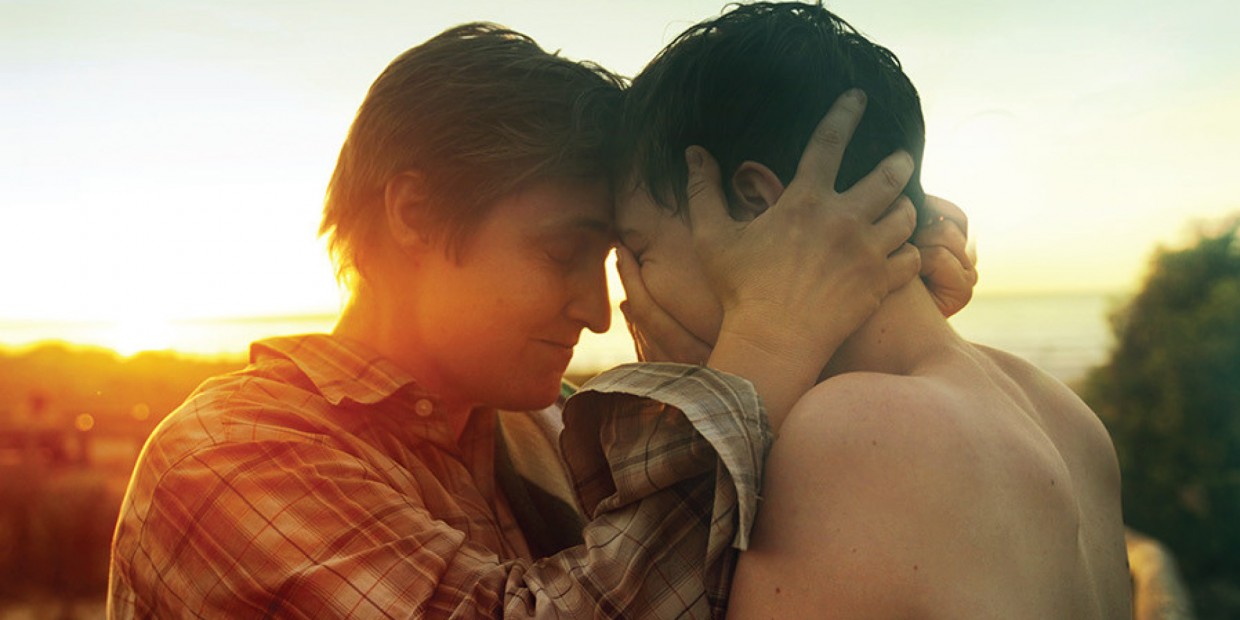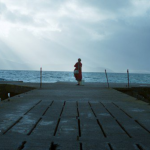By Rebecca Rowson
Australia’s 52 Tuesdays begins with a teenager, Billie, finding out her mother plans to transition into a man and change his name to James. Whilst James goes through this, he wants to live alone, asking Billie to move in with her father. Billie and James arrange to spend time together every Tuesday evening. The film is not only set, but also filmed on 52 consecutive Tuesdays, documenting this transitionary time for both mother and daughter over the course of a year. In this way, the film beautifully expresses the dynamic of the various relationships, containing the drama within a real-life structure. Filmdoo sat down with lead actress Tilda Cobham-Hervey (Billie) and director Sophie Hyde, to discuss the main themes of the film, how it remained an intimate picture, and the purpose and effect of this individual and staggered way of making a film.
Was it a conscious decision to remain focused on the characters’ personal issues, as opposed to a broader look at the societal reactions to their situation?
Sophie: It was certainly something we talked about a lot. I was really interested in the character journey. We did talk a lot about whether you needed to see more of that troubling stuff of dealing with the outside world. But the way we had set up the making of the film (how it was filmed and set only on every Tuesday of the week) meant that we were quite limited in what we felt we could include. We also wanted to look at what the experience was for the family and for the people really close to somebody going through that. The inner world itself can be overwhelming.
Tilda: We were focused on the inner worlds of all of us. The way we made the film was a very internal experience, because due to the way we got the scripts one week at a time, we weren’t able to think beyond that moment or that week. We were only able to respond to things as they happened, like in real life. Often, you’re not thinking about the exterior.
S: We certainly didn’t want to medicalize the transition too much, we didn’t want it to be about just the medical transition, because you can go online and find that information out for yourself. To tell a story you want it to be the effect of things. So, I guess it was conscious.
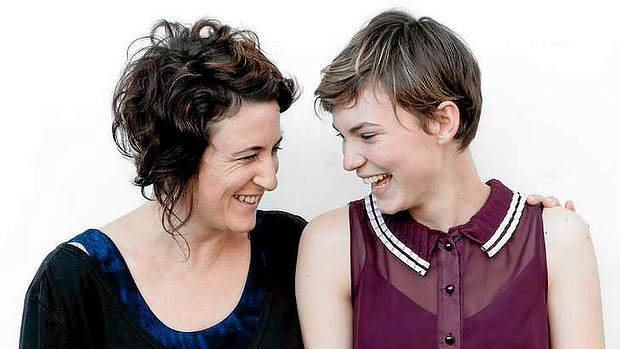
Halfway through the film, Tilda’s character asks the question of what it is to live an authentic life. Through going through this process, have you more of an idea of how you would answer that question?
T: It was one of the most amazing things I’ve ever been asked. But I don’t think I have an answer to that, I think authenticity changes in every second.
S: This is a fictional film, not just about telling someone’s story – it’s about something you feel, believe or are examining. I guess authenticity for me is about questioning things. Asking yourself what you’re doing, and being aware of that – rather than some answer or place to get to.
You’ve made documentaries, not fiction, in the past. Did this have an impact on the form of this film?
S: The concept of the film didn’t come from me. It came from Matt Cormack the writer. But certainly my interest in it probably comes from my background in documentaries. That sense of real time passing as you’re making something. Also the idea of still planting the seeds of the story whilst we were still writing it. That’s a little bit like making a documentary.
It feels like the themes of the film (capturing authenticity) are in line with the form. Since you didn’t know how the film was going to progress exactly, it makes the reactions real.
S: It’s very much an examination. You don’t want to make a film where the process is just there in and of itself, or where it’s a gimmick. It has to feel like it’s all tied in together. We made a film where a character segmented one part of their life – and yet that was what we’d done as well. So we also had to live within that structure. It was constantly art mimicking life mimicking art.
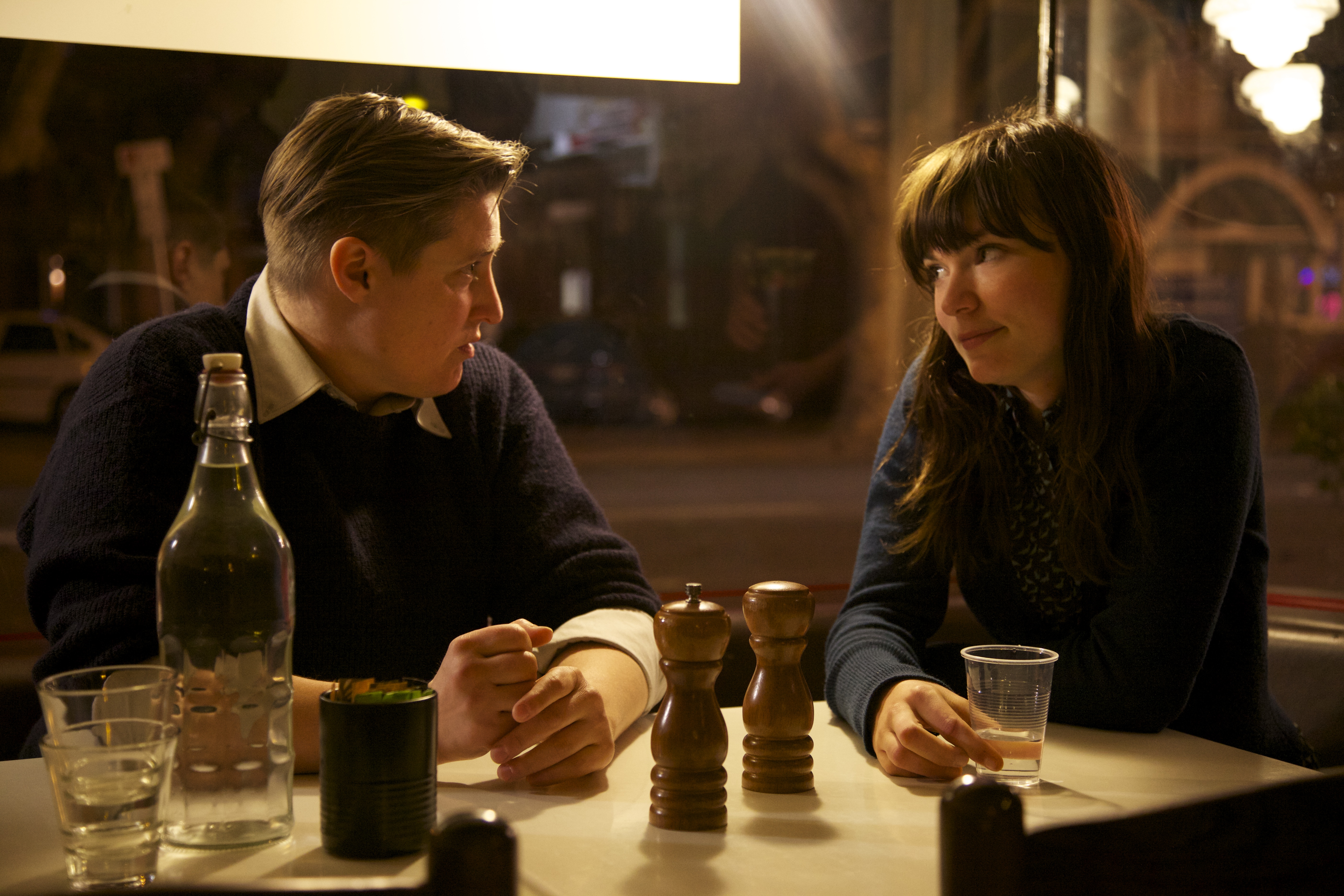
Because of the way the film begins, we only really see the characters whilst all these events are unfolding. I wondered what you think the relationship between Billie and James would have looked like before the events of the film take place?
S: It’s a funny place to start – when the change is happening. We start with the instigating incident. That’s unusual, as usually you’d have a set up, so you’d get to see what the relationships normally look like. I think the giveaways are that Billie is very much a child that wants to please her parents, and ensure they are happy. That’s something we don’t get to see very much, since usually we just have teenagers onscreen responding selfishly.
I think Billie and James are very close, but at the same time, James has been going through something that he hasn’t been able to share with Billie. So whilst Billie thinks they make all their decisions together, James has been making a decision without her – so I think their relationship probably was changing for a while before the film begins.
T: We did a lot of improvisations before the film started, like “˜cook a meal together’. I think that was needed in order for the relationship to feel real.
I was really impressed with the script, in the fact that this doesn’t feel like a story that is necessarily about a transgender parent – but rather a story about a parent and a child. It wasn’t about a mother becoming a father; it was about a parent having kept a secret.
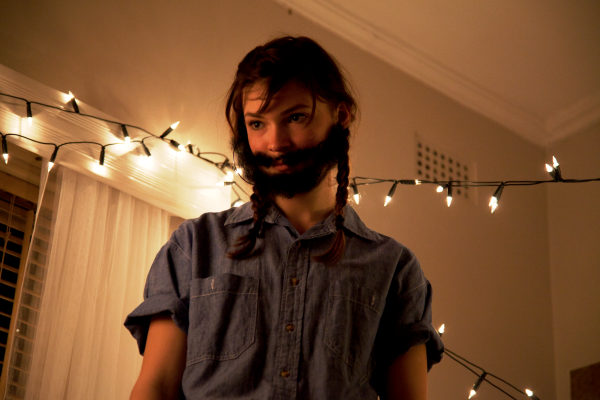
Tilda, you were 16 when you filmed this? So during a hugely formative time of your life. Since you were influencing the process of the film, at the same time as being influenced by the character yourself, did you ever struggle to disentangle yourself from the character?
T: I talk about that a lot when I’m asked what it’s like to live with the character. Ages 16/17 are formative years no matter what. It’s very hard to know how that process changed me or if I could have been different without it. I don’t know what I am without that experience. I would sometimes think “˜Am I Billie or Tilly?’ It’s especially hard watching it back – it’s weird because it’s your experience without quite being your experience – but it still reflects a really important time in your life. It was the same for everyone; everyone’s stories were embedded in that film.
S: I don’t know what the film would be if Tilly wasn’t involved. The changes that take place over the course of the year aren’t like that of Boyhood, where it’s 12 years and you look completely different. It’s not out loud like that.
If you made this film again now, a few years on, how do you think it would change the way it comes out?
T: I’ve worked on a few different things now, and I would love to do this process again. Maybe not quite the same way – since it’s kind of a crazy way to make something. But there’s something about the freedom and passion of the process that’s quite rare.
S: I think it would be fascinating to do this again in 20 years.
Watch 52 Tuesdays now at FilmDoo.com. (UK & Ireland only)

